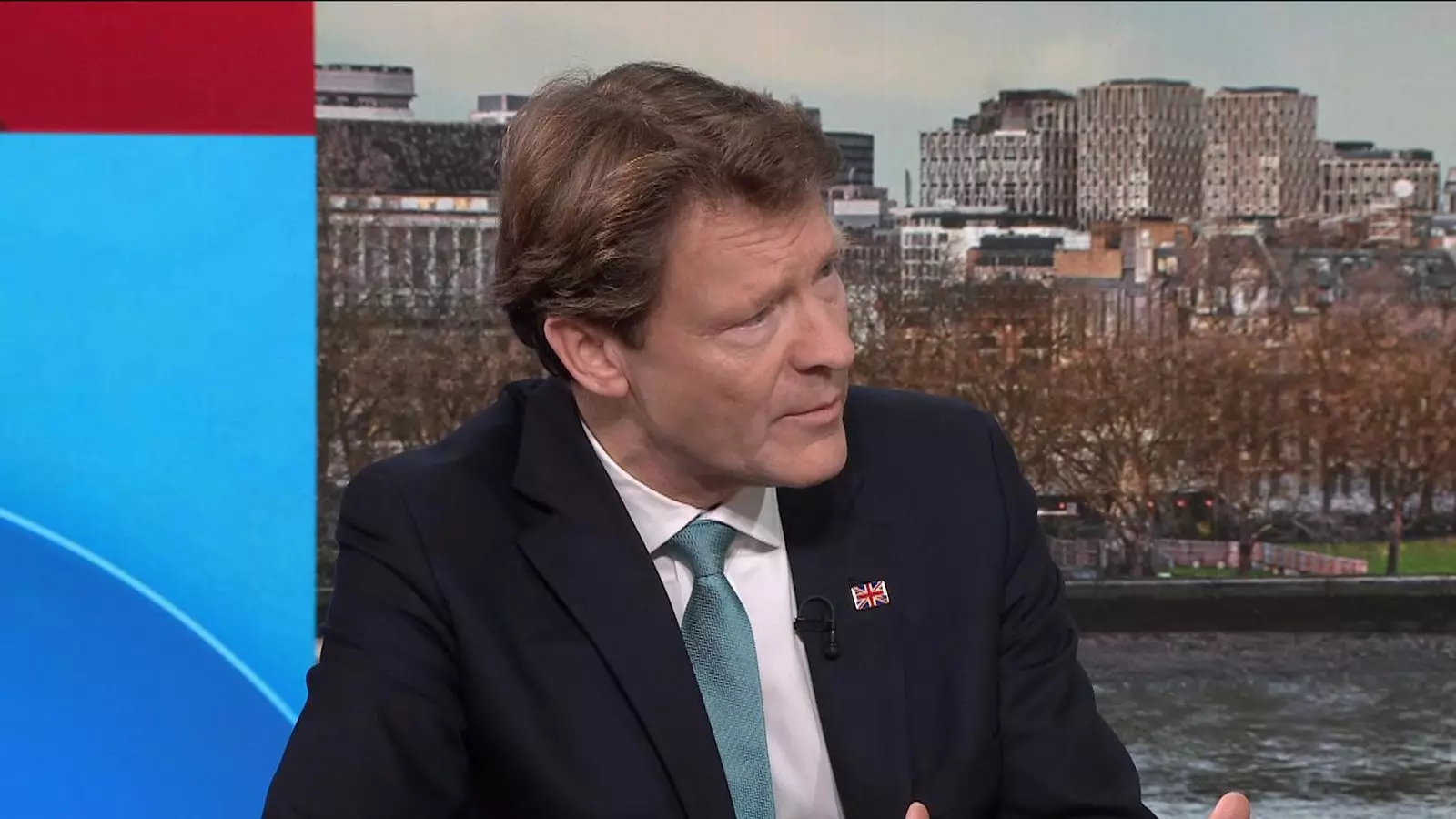The political landscape in the UK is often rocky, and the recent allegations against Great Yarmouth MP Rupert Lowe have thrown Reform UK into disarray. Richard Tice, the party’s deputy leader, has declared that suspending Lowe was the “right” decision after serious accusations of bullying by female staff members emerged alongside threats made towards them. However, the timing of this announcement raises eyebrows. It coincidentally followed Lowe’s public criticisms of party leadership, especially Nigel Farage’s governance. While Tice insists that the decision was rooted in genuine concern rather than political maneuvering, whether this is a sincere assessment or a calculated response to growing dissent within the party remains questionable.
One cannot overlook the messy dynamics at play. The notion that only now—several months post-complaint—these claims have surfaced could portray a deliberate attempt by the party to sideline a growing vocal member. The timing is not just inconvenient; it is suspiciously political. It’s hard not to wonder if the timing suggests a deliberate effort to stifle dissent within Reform UK before it blossoms into a full-scale revolt.
Dissonance in Leadership: Tice’s Statements Under Scrutiny
Tice’s comments on the matter reveal an intriguing narrative—one where he acknowledges the weight of these allegations while attempting to maintain Lowe’s contributions to the party. It’s commendable to recognize an individual’s efforts, but Tice’s handling of the situation suggests a dissonance between personal loyalty and party integrity. The way he framed the allegations as “unfortunate” implies that personal relationships may have clouded judgment. This is a slippery slope; in politics, especially in a party that prides itself on taking a hard stance on issues, the integrity of leadership should hold paramount importance.
Furthermore, Tice’s insistence that everyone would have been outraged had the allegations been buried speaks volumes about the precarious nature of party politics. If members feel they can air grievances and have them acted upon, that’s one thing; however, when political advantage takes precedence over ethical action, trust within party ranks erodes. There’s a fundamental risk involved in attempting to navigate these murky waters of personal relationships and political pressure.
The Fallout: Who Will Bear the Consequences?
What is potentially most alarming is the culture of silence that seems to run rampant not only in Reform UK but across British politics. Both Tice’s and Lowe’s narratives reveal a persistent issue of members feeling compelled to choose between loyalty to the party and their own moral compass. Lowe has strongly denied the allegations, framing them as personal attacks precipitated by his controversial yet popular stance on deporting illegal migrants. His claim that he has been warned about expressing these views suggests a debilitating atmosphere within Reform UK, where dissent isn’t merely discouraged but potentially punished.
Will Lowe’s claims resonate with the public? Can he frame his current situation as a martyrdom for party cohesion? One can only speculate how this saga will unfold and what ramifications it will have for both his future within Reform UK and the party as a whole.
Moreover, if accusations are weaponized for political advantage, as Lowe alleges, it poses significant ethical questions about the lengths to which party members will go to maintain a semblance of unity. The fallout could spiral beyond individual careers, reflecting poorly on an entire party’s commitment to justice and accountability.
Public Perception: A Damaging Narrative for Reform UK
With the media spotlight now squarely focused on Reform UK, the persistent question remains: how will this affect public perception? The party has strived to cement itself as a serious political player, yet such scandals can be a double-edged sword. Unless handled adeptly, allegations of bullying and a culture of silence can eclipse any credible messaging Reform UK had aimed to communicate, notably their hardline immigration policies.
To win the public’s trust, the party must demonstrate that they’re not only strong on policy but also robust in their internal governance practices. If they fail to exhibit true accountability and robust handling of serious accusations, voters may turn their backs, viewing them as another political group steeped in controversy and hypocrisy. It is imperative for Tice and the leadership to realize that the way they handle this situation will either serve as a rallying call for reform or as a fatal misstep that hampers their credibility for the long haul.


Leave a Reply